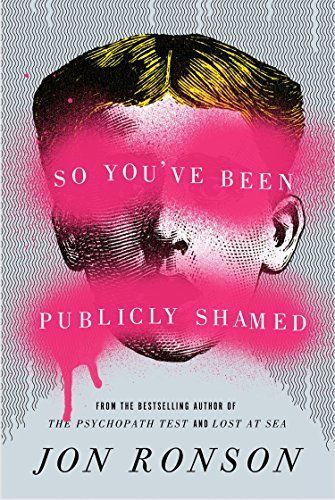
So You've Been Publicly Shamed
An internationally best-selling author explores the war on human nature and its flaws by immersing himself in the world of modern-day public shaming—meeting famous shames, shamers and bystanders who have been impacted and whose careers and lives have been ruined by one mistake. By the best-selling author of The Psychopath Test andLost at Sea.
Reviews
Ada@adasel
Patrick Book@patrickb
Isabella @iscbella
C@chembotss
kamille@starlostme
Boothby@claraby
Wynter@wynter
Gavin@gl
Beau@hyggeligbo
Charlotte Dann@chareads
Savindi Jinasena@streetlightreader
Midori Kobayashi@snortingpages
Taylor@taylord
Belle@bellebcooper
Aleksandra@ola_b
Maggie Gordon@maggieg
Augusta@augusta
Fraser Simons@frasersimons
Sarah Marchant@flutterpulse
Ana Cob@anacob
Shafel McDowall@hotgyal
Sarah Vaughan@sarahlee1164
Libby@demjin
Pranav Mutatkar@pranavmutatkar